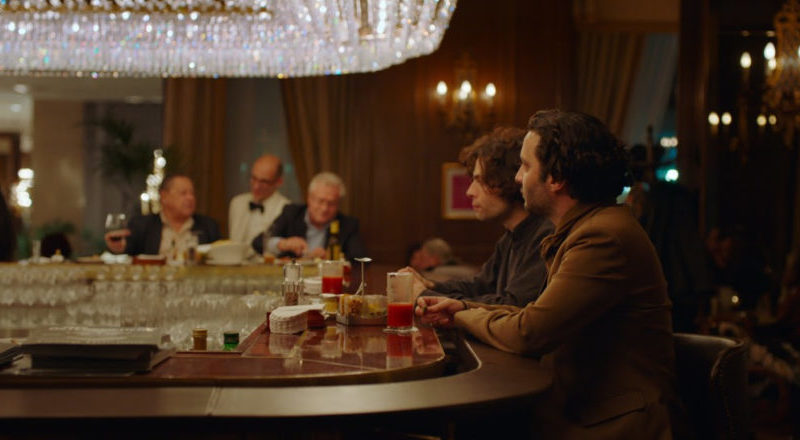INTERVIEW: New film honors director of the Viennale
Photo: Introduzione all’Oscuro is the new film from director Gastón Solnicki. Photo courtesy of Cinema Tropical / Provided in press email with permission.
Introduzione all’Oscuro is the new film from celebrated director Gastón Solnicki, director of the well-received Kékszakállú. The movie, which recently played the New York Film Festival, is a tribute to Hans Hurch, the late director of the Viennale (Vienna International Film Festival).
In the film, a man wanders around the streets of Vienna in search of a friend who is no longer there. Various personal objects and archives illuminate this man’s journey and the deep connection he had with his friend. It doesn’t take much to realize that Solnicki is portraying feelings he had himself when considering the death of his good friend, Hurch. Introduzione all’Oscuro serves as both a meditation on loss and a postcard collage of Vienna, a wondrous city in Austria.
Recently, Hollywood Soapbox exchanged emails with Solnicki, who is a leader in the Argentine cinema scene, about his new feature. Questions and answers have been slightly edited for style.
What inspired you to make this film about Hans Hurch?
Last year I was invited to the Viennale to participate in a tribute to my dear friend, Hans, who had died very recently, and I thought it would be nice to make a film which would somehow crystalize the kind of person he was and also about the things he loved. One often thinks for a long time in what film to get involved; this was the most spontaneous film I ever made, but still, it has much of the rigor and narrative dynamic of my previous film, Kékszakállú.
What were some of the challenges of the production?
Like in any film without much preproduction and without a script, the greatest challenge is to put things together. To fly people around, to understand what you are doing while you are doing it. To be ready, it takes a lot of concentration; that’s why I work with a very small crew of five people, including myself. I think it’s already too many people standing around.
You have called the film a ‘cinematic postcard.; Could you describe that term further?
Hans would often send me postcards which I never replied. I always thought one day I would respond with my own postcard. This film is constructed from a vast assortment of fragments of many kinds. An instinctive recording of one of our first conversations, old family footage, candid footage of Vienna …
I didn’t want to make a film about Hans, but rather I thought of a filmic offering where the destinatary [recipient] receives a little love package in a form specially constructed for such an end.
What was it like to premiere at the Venice International Film Festival?
It was a great honor to return to Hans’ favorite festival and to premiere next to the maestros. To be in the jury was very demanding but also allowed me to experience the festival in a completely different way. I really like Venice. I think it’s no doubt much more interesting than Cannes.
Do you feel that your films are intended for mainstream audiences or those who enjoy indie films?
I think my films are all crowd pleasers that don’t get yet to reach vast audiences, but distribution is changing so fast, going simultaneously in opposite directions. My films are more challenging than the mainstream, but also more generous.
Your last film, Kékszakállú, had no script or conventional characters. Do you anticipate that was a one-time occurrence, or do you feel that style of filmmaking (similar to Robert Altman) is part of who you are as a director?
I think that the idea of sticking to a certain style is prehistoric. I don’t feel committed to any kind of narrative technique. Rober Altman is indeed a big influence in terms of the freedom which with he worked — and in the large range of films he made.
By John Soltes / Publisher / John@HollywoodSoapbox.com
Gastón Solnicki’s Introduzione all’Oscuro recently played the New York Film Festival.

